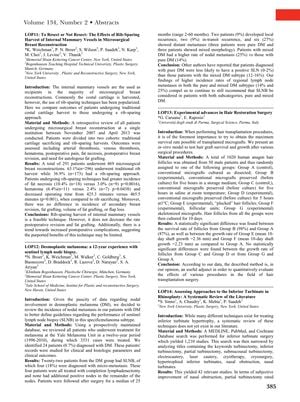LOP11
July 2014
in “
Plastic and Reconstructive Surgery
”

TLDR The rib-sparing technique in breast reconstruction may lead to more complications without reducing the need for further surgery.
The document presents the findings of a study comparing the outcomes of traditional costal cartilage harvest versus rib-sparing techniques in microsurgical breast reconstruction. A total of 291 patients underwent 469 reconstructions, with 63.1% (296 patients) using the traditional method and 36.9% (173 patients) using the rib-sparing approach. The study found that the rib-sparing technique resulted in a higher incidence of fat necrosis (10.4% vs. 3.0%, p=0.0016) and hematoma (6.4% vs. 2.4%, p=0.0438), but there was no difference in the need for secondary breast revision, fat grafting, volume of fat grafting, or flap loss. The rib-sparing method also reduced operating time (425.3 minutes vs. 465.5 minutes, p=0.001). The conclusion suggests that while rib-sparing harvest is feasible, it does not decrease the rate of postoperative revision and fat grafting and may lead to increased postoperative complications, indicating limited benefits of this technique.